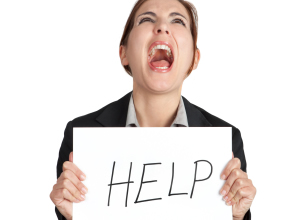Do You Know the Symptoms of Endometriosis?
Endometriosis is a painful condition that can affect 1 in 10 women and is the second most common gynaecological condition after fibroids.

I have heard from a number of women who suffer from Endometriosis but have found it not always diagnosed early as symptoms can be confused with PCOS and painful periods. This is why in young women very painful periods should always be investigated.
Worldwide 176 million suffer from this debilitating condition and your chance of having it increases by 50% in women with PCOS or infertility issues.
What is it?
Endometriosis occurs when the same type of cells that make up the lining of your uterus, the endometrium, grow outside it and attach to other parts of your body.
Knowing what it feels like is the first step in getting help.
Common symptoms
Some women call the pain from endometriosis “killer cramps” because it can be severe enough to stop you in your tracks. For many, it gets worse as they get older.
Other endometriosis symptoms include:
- Very long or heavy periods
- Severe cramps
- Severe migraines or lower back pain during your period
- Pain when you have a bowel movement or pee
- Allergies that get worse around your period
- Vaginal bleeding between periods
- Blood in your urine or from your bottom
- Fatigue
- Nausea
- Diarrhoea or constipation
- Bloating
- Trouble getting pregnant
Pain From Endometriosis
Endometriosis can cause pain in more than one area of your body, including:
Pelvic or belly pain. It might start before your period and last several days. It can feel sharp and stabbing, and medication usually won’t help. Some women say it feels like their insides are being pulled down. They have a gnawing or throbbing feeling that can be severe.
Backache. Your uterus and ovaries are near your back. Belly pain that makes you hunch over can hurt your back, too.
Leg pain. Endometriosis can affect nerves that connect to your groin, hips, and legs. This can make it hard to walk. You may limp or have to rest often.
Painful sex. Many women with endometriosis feel pain while having sex or up to 2 days later. For some, it feels stabbing or sharp. Others describe it as an ache in their pelvic area.
Painful bowel movements, and this can be depending on the affected areas.
Endometriosis and Infertility
Many young women may first be diagnosed with if endometriosis if they are finding it hard to get pregnant.
This may happen if the tissue growing outside your uterus causes scarring, which can affect your fallopian tubes and keep an egg and sperm from meeting. It can also stop a fertilised egg from implanting in the lining of your uterus.
Surgery can remove the extra tissue, which may make it easier to get pregnant. Or you might try assisted reproductive technology to help you conceive.
Helpful information:
Although currently there is no ‘cure’ for endometriosis it can be managed and generally the first step will be painkillers and your doctor may suggest the Pill/Coil or IUD and if necessary surgery to remove the endometrial tissue or a hysterectomy.
Good hormone levels are also important which is why your doctor may suggest the above which unfortunately don’t contain progesterone but synthetic progestins. The intention is to reduce inflammation and as progesterone is a natural anti-inflammatory supplementing with that can certainly be helpful.
There are also some simple self-help methods such as heat therapy with either a hot water bottle or a hot mouth to ease cramping. Your diet also is very important because increasing your fibre intake helps eliminate excess oestrogen as does increasing anti-inflammatory foods rich in omega-3 fatty acids such as oily fish and flaxseed can help reduce pain.
A key element here is drinking plenty of water and keeping hydrated, but not with caffeine or alcohol.
Endometriosis does need to be reported and investigated by your doctor, but if you are concerned then the following article will give you some more ideas on how to manage it.
https://anna.blog.wellsprings-health.com/9-lifestyle-changes-that-may-help-with-endometriosis/


















